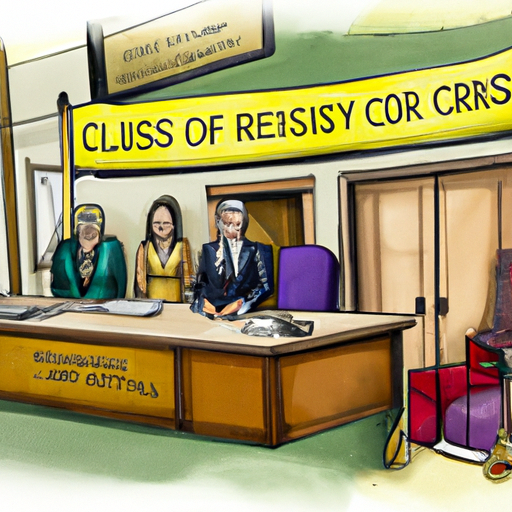The Unfolding Reality of the Canadian Opioid Crisis: A Class-Action Lawsuit in the Limelight
The persistent and devastating opioid crisis in Canada continues to exact a significant toll on the health, wellbeing, and sustainability of our communities. This public health crisis has been largely propelled by opioids, a class of drugs including prescription pain relievers and illegal substances, which have caused destruction across various landscapes of our society, particularly on those who are homeless and are frequently involved in crime.
The Link between Big Pharma and Opioid Crisis
A crucial turning point in this crisis is unfolding: a class-action lawsuit is beckoning accountability from pharmaceutical companies for their significant role in exacerbating the opioid crisis. The outcome of this lawsuit could have wide-ranging implications on how we address the opioid epidemic, potentially directing resources to necessary and essential services for affected individuals and communities.
A class-action certification was granted in Ontario Court of Justice in 2020, which was met with appeals from a myriad of pharmaceutical companies challenging the certification process. If allowed to proceed, this class-action lawsuit will be the first of its kind in Canada, unlocking the possibility of collective recompensation and rehabilitation efforts.
Key Points
- A significant part of the opioid crisis stems from the misuse of marketed opioids, invoking a need to hold pharmaceutical companies accountable for their part in propagating the crisis.
- The class-action lawsuit in question targets over 40 pharmaceutical companies, including well-known giants like Purdue Pharma.
- This lawsuit is a pivot towards a more comprehensive approach to tackling the opioid crisis, emphasising recognition of systemic failings and a collective movement towards rectification.
- Much of the opioid crisis’s negative impact disproportionately affects vulnerable populations, such as the homeless.
- It is vital to embrace a multi-faceted solution that also addresses crime rates, mental health, and social economic inequality that ties into the opioid crisis.
Actions Taken To Battle the Opioid Crisis
In coping with this catastrophe, several initiatives, including naloxone distribution programs, have been implemented. As a potentially lifesaving measure, naloxone counters opioid overdoses and buys crucial time for medical intervention. Still, these measures only tackle individual instances and do not counteract the systemic roots of the crisis ‒ hence the importance of this class-action lawsuit, a step towards remedying these roots.
Furthermore, tackling the opioid crisis calls for holistic solutions that touch on social economic inequality, mental healthcare provision, and homelessness. Recognizing these areas can have significant multiplier effects, aiding not just in alleviating the opioid crisis but also revitalizing communities.
The Way Forward: Class-Action and Collective Responsibility
As the court deliberates on the potential for this landmark class-action lawsuit against pharmaceutical companies, we must remember the broader message this carries: the need for a systematic, multifaceted response to the opioid crisis in Canada. This response involves the accountability of pharmaceutical corporations but also needs to consider an integrated approach involving drug policy reform, systemic support for homeless and vulnerable populations, and increased investment in mental health care.
In Conclusion
At its core, the opioid crisis is not just about drugs, crime, and homelessness; it equally importantly draws attention to the systemic failures within our health, legislative, and social systems. The proposed class-action lawsuit symbolizes a shift in our collective mindsets towards holding relevant stakeholders accountable, asserting society-wide responsibility, and prioritizing resources for the rehabilitation of affected individuals and communities. Companies should not be allowed to profit from a crisis they had a role in creating, and this step towards holding Big Pharma accountable could have a ripple effect worldwide.
